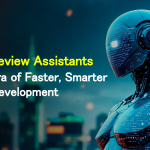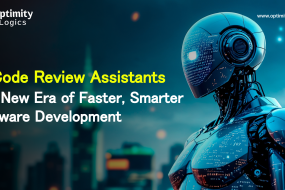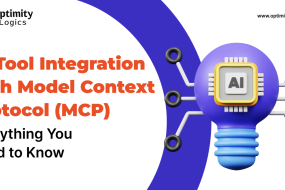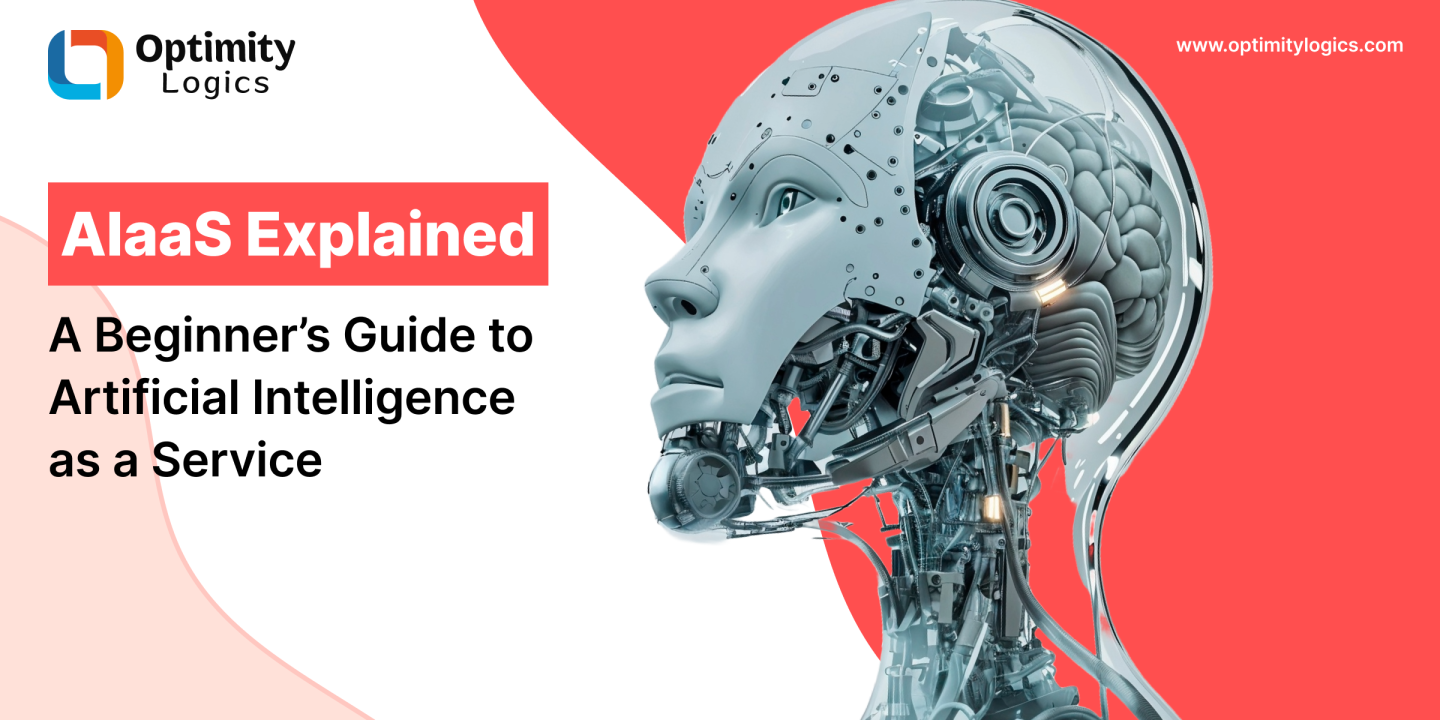
In today’s digital era, businesses are under immense pressure to innovate, automate, and deliver personalized experiences faster than ever. Artificial Intelligence (AI) has emerged as a game-changer, empowering organizations with predictive analytics, natural language processing, computer vision, and intelligent automation. However, building and maintaining AI infrastructure is often costly, complex, and resource-intensive.
This is where AI as a Service (AIaaS) comes into play. Much like Software as a Service (SaaS), AIaaS allows companies to access powerful AI tools and services through the cloud, without the need for heavy upfront investment. It levels the playing field, making cutting-edge AI capabilities accessible to startups, small businesses, and enterprises alike.
In this blog, we’ll explore what AIaaS really means, its benefits, challenges, use cases, and why it’s quickly becoming a cornerstone of modern digital transformation.
What is AIaaS?
AIaaS, short for Artificial Intelligence as a Service, refers to the delivery of AI capabilities through cloud platforms on a subscription or pay-as-you-go basis. Instead of purchasing expensive servers, hiring specialized data scientists, and building algorithms from scratch, organizations can leverage pre-built AI services from providers like Amazon Web Services (AWS), Microsoft Azure, Google Cloud AI, and IBM Watson.
These services often include:
- Machine Learning (ML) platforms for training and deploying models
- Natural Language Processing (NLP) for chatbots, sentiment analysis, and language translation
- Computer Vision APIs for image recognition, facial detection, and object tracking
- Speech recognition for voice assistants and call analytics
- Predictive analytics for forecasting demand, sales, or risks
In short, AIaaS makes complex AI tools available on demand, eliminating the barriers of cost and expertise.
Why Businesses are Turning to AIaaS
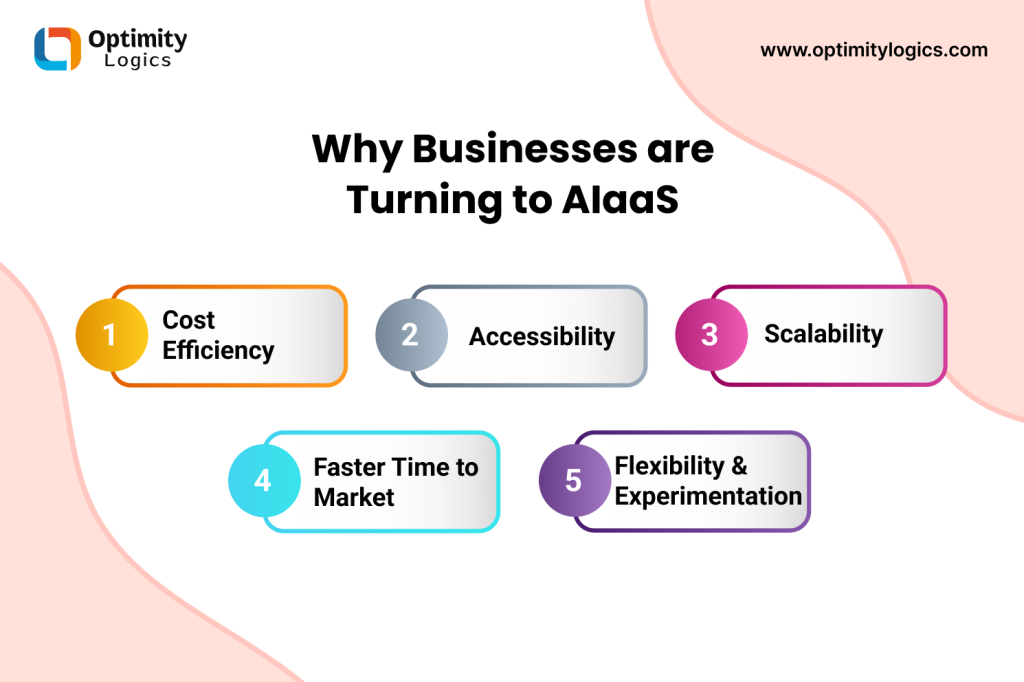
The global AIaaS market is booming. According to industry reports, it’s projected to grow at a CAGR of over 25% in the next five years. But what makes it so appealing to businesses of all sizes?
1. Cost Efficiency
Traditional AI development demands specialized talent, high-performance computing, and massive datasets. For many companies, this is prohibitively expensive. AIaaS eliminates upfront costs, offering scalable subscription models that fit various budgets.
2. Accessibility
With AIaaS, organizations don’t need a dedicated team of PhD-level data scientists. Most services provide intuitive interfaces, drag-and-drop tools, or APIs that developers can integrate easily.
3. Scalability
As businesses grow, their data and AI requirements expand too. AIaaS platforms allow easy scaling — whether you’re handling thousands of customer queries or millions of transactions.
4. Faster Time to Market
By leveraging pre-built AI models, companies can launch AI-powered applications in weeks instead of years. This accelerates innovation and boosts competitiveness.
5. Flexibility & Experimentation
AIaaS gives organizations the freedom to experiment with multiple AI models without committing to huge infrastructure investments. This encourages innovation with minimal risk.
Key Components of AIaaS
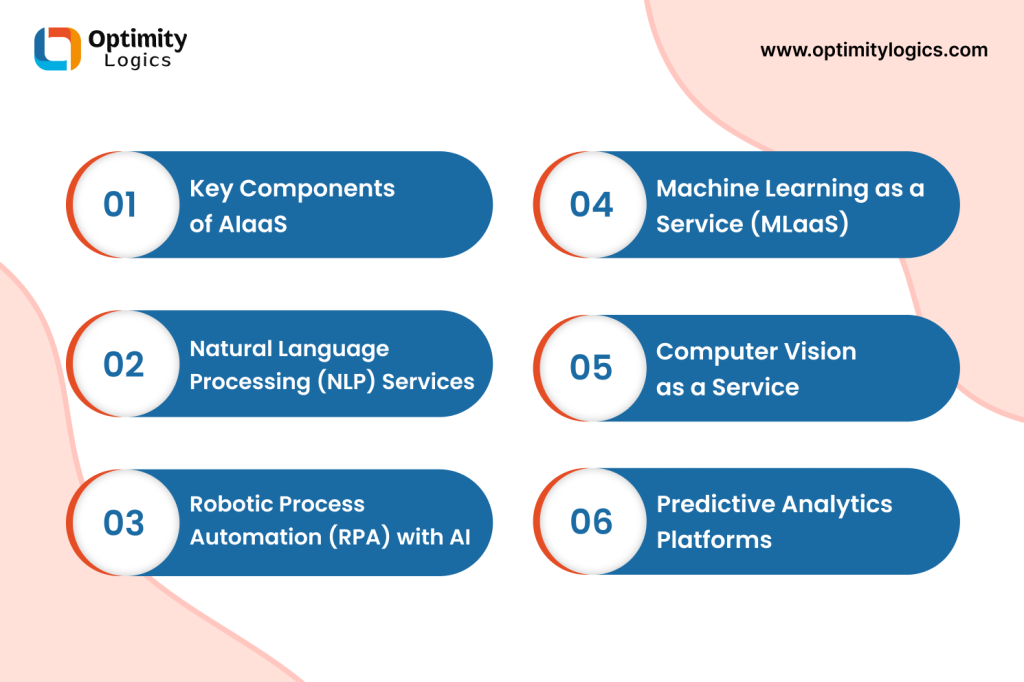
AIaaS is not a one-size-fits-all model. It encompasses a variety of services that cater to different business needs:
Machine Learning as a Service (MLaaS)
MLaaS platforms provide pre-built algorithms, training environments, and deployment tools. Companies can upload their data and train models without managing the underlying infrastructure.
Natural Language Processing (NLP) Services
From chatbots to voice assistants, NLP helps businesses analyze and understand human language. Examples include language translation, speech-to-text, and automated customer support.
Computer Vision as a Service
These services enable applications to process and analyze images or videos. Retailers use it for inventory tracking, healthcare providers for medical imaging, and security companies for surveillance.
Predictive Analytics Platforms
AIaaS offers predictive tools that analyze historical data to forecast trends, risks, and customer behavior — vital for industries like finance, logistics, and e-commerce.
Robotic Process Automation (RPA) with AI
AI-enhanced RPA allows businesses to automate repetitive tasks intelligently, adapting to new inputs rather than just following static rules.
Use Cases of AIaaS Across Industries
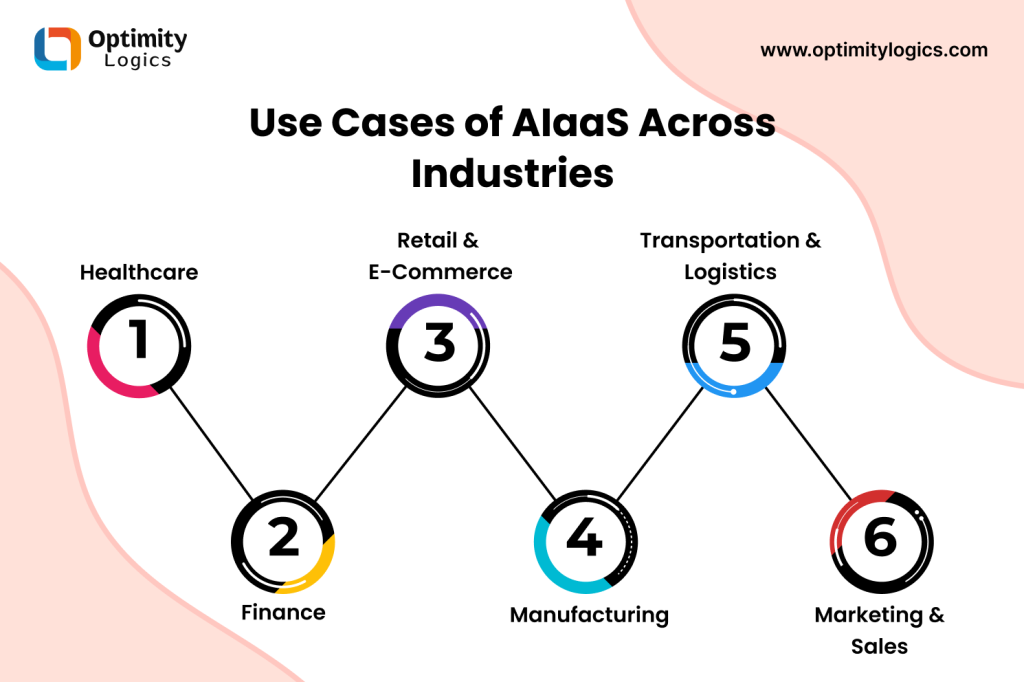
AIaaS is reshaping industries by making intelligence more accessible. Here are some real-world applications:
1. Healthcare
- AI-powered diagnostic tools that assist doctors in reading medical images
- Predictive models to forecast patient outcomes
- Virtual health assistants for patient support
2. Finance
- Fraud detection systems using AI anomaly detection
- Credit scoring models for lending decisions
- AI-driven investment analysis
3. Retail & E-Commerce
- Personalized product recommendations
- Automated customer support chatbots
- Inventory demand forecasting
4. Manufacturing
- Predictive maintenance for machines
- Quality control with computer vision
- Supply chain optimization
5. Transportation & Logistics
- Route optimization using AI algorithms
- Demand forecasting for fleet management
- Autonomous delivery systems
6. Marketing & Sales
- Sentiment analysis for brand monitoring
- AI-driven lead scoring and customer segmentation
- Dynamic pricing models
Benefits of AIaaS for Startups and SMEs
Large enterprises have the resources to build AI systems in-house, but startups and small-to-medium enterprises (SMEs) often lack the expertise or budget. AIaaS levels the playing field by giving smaller players access to the same powerful AI technologies.
- Lower entry barriers for experimentation
- On-demand scalability as the company grows
- Access to enterprise-grade AI without major investments
This democratization of AI is fostering innovation across industries and helping businesses remain agile.
Challenges and Considerations of AIaaS
While AIaaS offers numerous advantages, businesses must also consider its challenges:
1. Data Privacy & Security
Sensitive data shared with AIaaS providers may face compliance risks. Industries like healthcare and finance must pay extra attention to regulations such as HIPAA and GDPR.
2. Vendor Lock-In
Relying too heavily on a single AIaaS provider can create dependency, making migration difficult or costly.
3. Limited Customization
Pre-built AI services may not meet every unique business requirement. Organizations may still need custom development for specialized use cases.
4. Performance Variability
Since AIaaS relies on shared cloud resources, performance can vary based on workload and provider capabilities.
The Future of AIaaS
The future of AIaaS looks promising as cloud providers continuously invest in expanding their AI capabilities. Emerging trends include:
- AI democratization: More user-friendly tools for non-technical users
- Edge AI: AI services running closer to devices, reducing latency
- Hybrid AIaaS: Combining on-premises and cloud AI for greater flexibility
- Ethical AI frameworks: Ensuring transparency, fairness, and accountability in AI models
As AIaaS evolves, businesses that adopt it early will have a competitive advantage in innovation and efficiency.
How to Get Started with AIaaS
If you’re considering adopting AIaaS, here are some steps to begin:
- Identify Use Cases – Start with a clear problem you want AI to solve (e.g., improving customer support, forecasting demand).
- Choose the Right Provider – Compare offerings from AWS, Azure, Google Cloud, and niche AI providers.
- Experiment & Test – Begin with small projects to validate the benefits.
- Ensure Data Governance – Establish compliance and security protocols.
- Scale & Integrate – Once proven, expand AIaaS into core business workflows.
Final Thoughts
Artificial Intelligence is no longer a futuristic concept — it’s a present-day necessity. Yet, for many businesses, building AI from scratch is impractical. AI as a Service (AIaaS) solves this problem by making powerful AI tools accessible, affordable, and scalable.
Whether you’re a startup exploring AI for the first time or a large enterprise looking to accelerate innovation, AIaaS can be the key to unlocking growth and efficiency. As providers enhance their offerings, the future will bring even more opportunities to integrate AI seamlessly into business processes.
If you’re exploring custom solutions that combine AIaaS with tailored development, companies like optimitylogics can help bridge the gap between off-the-shelf tools and enterprise-ready AI applications.
